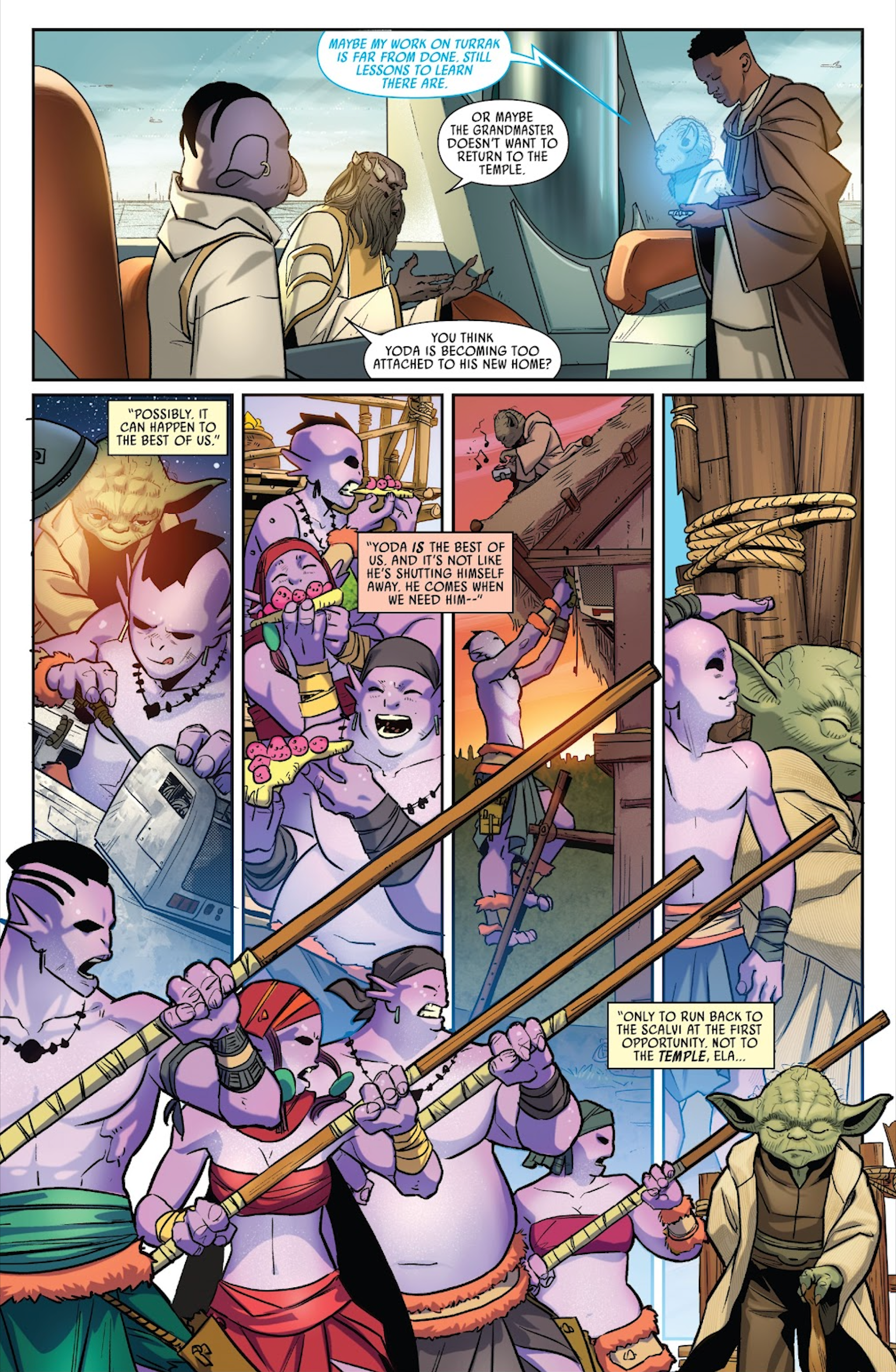Warning: SPOILERS for Yoda #2
The Star Wars franchise has revealed a key moment in Yoda’s backstory – and fans will never be able to see The Last Jedi the same way again. The diminutive green Jedi Master is known for being one of the most enigmatic characters in the series; little is known about his past, his home planet and even his species. But Yoda #2 recontextualizes The Last Jedi by showing Yoda many years before the prequel era, and what he initially believed the Jedi should offer to the galaxy.
Released in 2017, The Last Jedi was commercially and critically successful, but was also quite controversial among the Star Wars faithful. Naysayers disliked the film for, among other elements, showing the character of Luke Skywalker as an old, bitter man who lives in seclusion after a tragic mistake nearly destroyed the entire Jedi Order. It also introduced the Sacred Jedi Texts: ancient books guarded by Luke that supposedly held all the secrets of the Force-wielding guardians. Rey saves the books from at the end of the film – but the majority of the contents remain a mystery.
In Yoda #2, written by Cavan Scott with art by Nico Leon, Yoda makes a shocking decision: after helping a backwater world fend off a band of raiders: he elects to stay on the planet rather than return to the Jedi Council. The council is not pleased with Yoda’s decision, but even during the High Republic era, his wisdom was respected, if not always entirely understood. Yoda uses the Force to defend the natives, but stresses the importance of building one’s own defenses as well; “Need me you do not” he says, insinuating that they cannot rely on his help forever.
Yoda Always Wanted The Jedi To Live Among Ordinary People

The Sacred Jedi Texts, presumably, contain many instances of Jedi helping others in need and – crucially – living among the ordinary people instead of living above them in a proverbial ivory tower. It is no wonder why the Sith Lord Emperor Palpatine was able to turn popular sentiment against the Jedi so quickly: the Jedi, by their own actions, cast themselves as police, judge, jury, and even executioner. Their inexperience with military matters during the Clone Wars sealed their fate; in the eyes of many, the Jedi were incompetent and not fit to wield the power they possess.
The Jedi of the distant past, long before the High Republic era, operated as Ronin-esque Samaritans rather than a ruling body. This is what Yoda wants Rey to understand: the Jedi must use their powers for good, but must be an apolitical organization and cannot swear their allegiance to one government or another (or a single man, in the case of Palpatine). Star Wars fans always knew the Jedi were as much at fault for their demise as Palpatine, and now Yoda’s revelations prove it.




